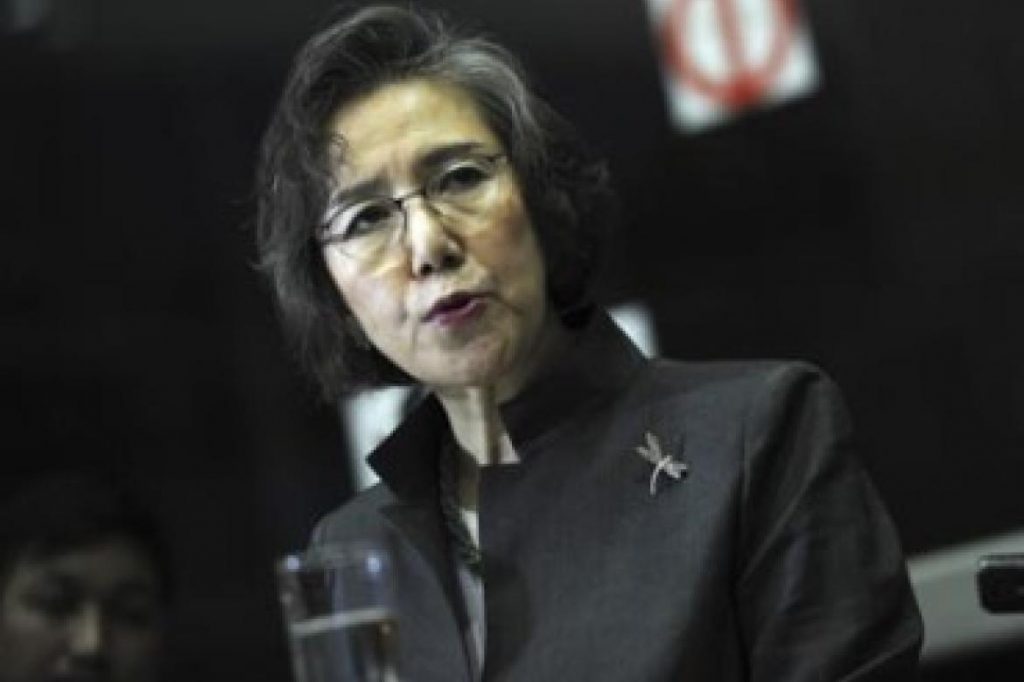YANGON — Ms Yanghee Lee issued the plea in Yangon on August 7 at the end of her third visit as the UN special rapporteur on human rights in Myanmar.
“Civil society actors, journalists and ordinary citizens exercising their rights to freedom of expression, assembly and association are not threats … and they play a vital role in contributing to and sustaining a robust democracy, and in advocating for the promotion and protection of human rights,” Ms Lee said.
“I stand with you, the people of Myanmar, as you chart your way forward in this historic moment,” she said, referring to the looming election.
Ms Lee said truly free and fair elections needed an environment that encouraged the participation of all sectors of society.
“Guarantees for the exercise of the rights to freedom of opinion and expression, and the freedom of peaceful assembly and association are vital to the democratic process, prior to, during and after the elections,” she said.
Support more independent journalism like this. Sign up to be a Frontier member.
Ms Lee said that in her talks with the Union Election Commission she had stressed the importance of a free and fair election to ensure it produces a credible and legitimate outcome.
“This is what the people of Myanmar, and, more broadly, the international community expect,” she said.
The UN special rapporteur welcomed the government’s cooperation with organisations providing technical assistance and advice and its invitation to national and international groups to observe the elections.
She emphasised that elections must be inclusive and a true reflection of the will of the people and mentioned concerns raised by those she had met about errors in voter lists.
Ms Lee called for an immediate end to the continuing arrests and convictions of civil society actors – including students, political activists, workers, union leaders, farmers and community organisers – for exercising their rights to freedom of expression, assembly and association.
“Many with whom I spoke believe that this is deliberately done to ensure that they remain in prison and are excluded from the upcoming elections,” she said.
Ms Lee also expressed concern about the possible disenfranchisement of thousands of people, including migrant workers, internally displaced persons and refugees. She expressed “grave concern” about the disenfranchisement of hundreds of thousands of people who previously held temporary registration documents, or white cards, and were allowed to vote in the 2010 elections. This had particularly affected the Muslim community in Rakhine State, she said, and must be seen against the backdrop of institutionalised discrimination.
Ms Lee said she had been advised against publicly raising “sensitive issues” affecting Rakhine because of the risk of fuelling communal tensions and potential conflict.
“But I cannot shy away from continuing to highlight serious human rights violations and make principled but constructive recommendations,” she said.
“This is fully in line with my mandate and is rooted in Myanmar’s international human rights commitments and obligations.”
Ms Lee expressed regret that a request to travel to Rakhine was denied by the government before her visit began.
“While immensely grateful for the opportunity to engage constructively with the Chief Minister, Rakhine State authorities and members of the Emergency Coordination Centre, as well as some Rakhine Elders, I am acutely conscious that they were brought to Yangon especially to meet me, while dealing at the same time with a natural disaster,” she said.
Ms Lee, whose latest mission began on August 3, also expressed regret that the government had declined her request for a 10-day visit and that some meetings she had sought were changed or cancelled at the last minute without prior notice.
Ms Lee will submit a report on her visit to the UN General Assembly in October.







